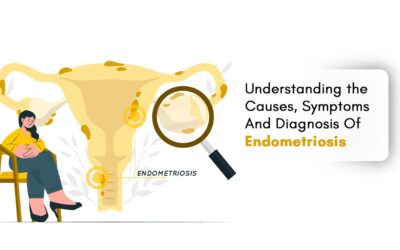Ultrasound
Ultrasound, also known as sonography, is a diagnostic imaging technique that uses high-frequency sound waves to create images of structures within the body. In obstetrics and gynecology, ultrasounds are crucial for monitoring the development of the fetus during pregnancy, assessing women’s reproductive health, and aiding in the diagnosis of gynecological conditions.
Importance:
Ultrasounds provide a non-invasive method for healthcare providers to visualize the female reproductive system, including the uterus, ovaries, and in pregnancy, the developing fetus. They aid in identifying any anomalies, assessing fetal growth and development, determining gestational age, and can also be used in procedures such as amniocentesis.
Types of Ultrasound:
- Transabdominal Ultrasound: Traditional method where the probe is moved across the abdomen.
- Transvaginal Ultrasound: Probe is inserted into the vagina to get closer images of certain structures, often used early in pregnancy or to better visualize the ovaries or uterus.
- Doppler Ultrasound: Measures slight changes in the ultrasound waves as they bounce off moving objects, such as blood cells, to assess blood flow.
- 3D and 4D Ultrasounds: Provide more detailed images of the baby during pregnancy.
Who needs it:
Women who are pregnant, or those who have symptoms of a gynecological condition that needs further investigation, may require an ultrasound. They are also used in regular gynecological check-ups to monitor a woman’s reproductive health.
Types of Services for Ultrasound:
Infertility primarily presents in two types:
- Prenatal Ultrasound: Regular scans during pregnancy to monitor fetal development, assess the health of the placenta and amniotic fluid, determine the baby’s position, and estimate the due date.
- Gynecological Ultrasound: Used to assess a woman’s reproductive organs for any abnormalities or conditions, such as ovarian cysts, fibroids, or other gynecological disorders.
- Ultrasound-guided Procedures: Ultrasound can be used to guide certain diagnostic or therapeutic procedures, such as amniocentesis or treatment for fibroids.
- Counseling: Providing information about the procedure, discussing results, and offering guidance on any next steps based on the ultrasound findings.
When to see a doctor:
Ultrasounds are typically part of routine prenatal care. Outside of pregnancy, a woman might need an ultrasound if she is experiencing symptoms like pelvic pain, abnormal menstrual bleeding, or other reproductive health concerns. Schedule a consultation with Dr Seema to ascertain the appropriate diagnosis and the best course of treatment.
Request an Appointment with Doctor
Hear from our past patients
Testimonials
Sravan beledhe
![]()
we approached to seema clinic on 1st sep 2021 for my wife gynec health issue. Madam treated like family persons and seema madam Taken special attention and treatment also very polite manner. I really so much happy I will suggest my Relatives to your hospital.
Vibha Singh
![]()
Dr.Seema is well experienced and good gynaecologist. Her humble and kind approach to the patient makes them comfortable and happy. Well maintained staff and facilities.
Gundagani Revathi
![]()
Hi friends, I went to this hospital clinic today and the dooctor was really good. She is very suggestive, caring and supportive. I frankly recommend you all to her when necessary. Dr. Seema is really one of the best Gynaecologist that I have ever met.
Check out our latest blogs,
Understanding the Causes, Symptoms And Diagnosis Of Endometriosis
A condition where the tissue...
How to Maintain Optimal Cervical Health?
Cervical cancer is the...
5 Common Menopause Myths Debunked
Women, we get it. Menopause...
Services
Important Links
Location
No 1A, 3-8-341/2, Chandrapuri Colony, L. B. Nagar, Hyderabad, Telangana – 500072
Phone: 9652 603 431
Email: Contact@drseemaclinic.com
Follow Us
© 2023. Dr. Seema Clinic | All rights reserved.
Custom Website Design by Markay Technologies.



